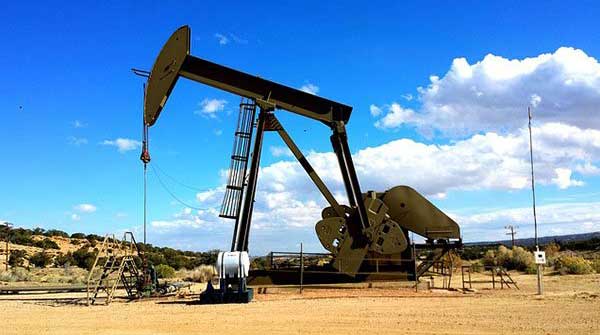Canada ranks fourth as an oil producer, behind the U.S., Russia and Saudi Arabia
 Canada is among the topmost oil producers in the world. As of September 2023, it produced some 4.78 million barrels per day (bpd). Contributing some 5.6 percent to the total global output, Canada is currently the world’s fourth largest oil producer, ahead of Iraq.
Canada is among the topmost oil producers in the world. As of September 2023, it produced some 4.78 million barrels per day (bpd). Contributing some 5.6 percent to the total global output, Canada is currently the world’s fourth largest oil producer, ahead of Iraq.
In the overall global scenario, the United States remains at the top of the list, contributing 14.7 percent to the world’s total output. The Russian production of 9.48 million barrels stands second to it, while Saudi Arabia stands just below Russia’s crude production.
However, it’s important to note that Western sanctions on the Russian oil sector and Saudi Arabia’s output restraint as part of OPEC production quotas are affecting the overall output of both countries. In a free market context, these nations could have potentially produced more than they have.
Some recent reports in the media are underlining the strength of the Canadian oil sector.
The country’s largest oil and gas producer by market capitalization, Canadian Natural Resources Ltd., churned out 1.42 million barrels of oil equivalent per day in the fourth quarter of 2023, up nearly 10 percent year-over-year to break its all-time quarterly production record, the Canadian Press reported last week.
The Calgary-based company also achieved record quarterly natural gas production with 2.23 million cubic feet per day, capping off record oil and gas volumes for the full year.
The increase came as demand for oil in the U.S. rose 3.4 percent year-over-year in October, according to a report from the U.S. Energy Information Administration. The report underlined that the U.S. imports far more Canadian petroleum and gas than all other countries combined.
The U.S. market is the largest and the most important market for Canadian energy producers. Overall, Canadian crude oil imports to U.S. refineries for processing have risen from over 1.3 million bpd in 2000 to just under 3.8 million barrels per day in 2022, an increase of 181 percent. According to a recent report from Ven Venkatachalam, Director of Research with the Canadian Energy Centre, the share of Canadian crude in U.S. refinery feedstock rose from nearly nine percent in 2000 to over 23 percent by the end of 2022.
Like all other Canadian oil producers, Canadian Natural Resources Ltd is reportedly awaiting the startup of the Trans Mountain pipeline expansion to increase its exports to the U.S. markets. Last week, the company said it was committed to shipping 94,000 bpd on the twinned line that will give Alberta oil producers additional export capacity to the West Coast.
The contents of the exports through the line could be a mixture of heavy and light crude, Scott Stauth, the newly inducted president of the company, was quoted as saying. The project is about 98 percent complete and expected to start service in the second quarter of 2024, according to Canadian Natural Resources Ltd.
Ahead of the Trans Mountain pipeline expansion’s completion and to take advantage of potential increased exports to U.S. refiners, some Canadian producers are already strategizing to ramp up their output.
Lisa Baiton, the president and CEO of the Canadian Association of Petroleum Producers (CAPP), remains optimistic about the industry’s trajectory. CAPP is forecasting capital expenditures for the upstream oil and natural gas sector to reach $40.6 billion this year, a slight increase from the $39 billion invested by companies in 2023.
A Canadian Press report, however, quoted Baiton as saying that in the light of the ongoing uncertainty surrounding emissions policy in Canada, the oil and gas companies are cautious in their future moves.
CAPP forecasts Alberta’s oil and gas producers will maintain a steady investment level year over year at $29 billion, with the oilsands expected to contribute around $13.3 billion of the projected investment.
Pathways Alliance, a consortium of oilsands companies, has proposed spending $16.5 billion on a massive carbon capture and storage network to reduce emissions from oilsands sites in northern Alberta. However, according to the Canadian Press, Pathway Alliance has yet to pull the trigger with a final investment decision.
Canada remains a key player in a world that will rely on fossil fuels for decades to come.
Toronto-based Rashid Husain Syed is a highly-regarded analyst specializing in energy and politics, with a particular emphasis on the Middle East. Besides his contributions to both local and international newspapers, Rashid frequently lends his expertise as a speaker at global conferences. His insights on global energy matters have been sought after by organizations such as the Department of Energy in Washington and the International Energy Agency in Paris.
For interview requests, click here.
The opinions expressed by our columnists and contributors are theirs alone and do not inherently or expressly reflect the views of our publication.
© Troy Media
Troy Media is an editorial content provider to media outlets and its own hosted community news outlets across Canada.


